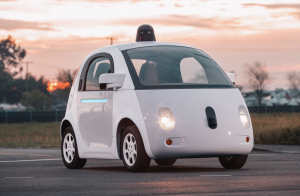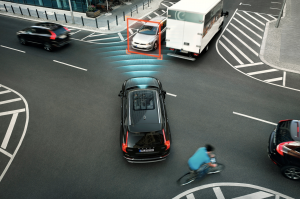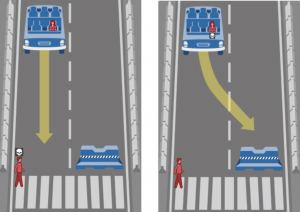Is the world ready for Self-Driving Cars?

From: https://s1.cdn.autoevolution.com/images/news/exclusive-ny-pols-want-to-fix-1971-steering-wheel-law-to-allow-for-self-drivi-107966_1.jpg
The fast development of new technologies has brought a more convenient and efficient life to the society. Tesla, Nissan, different automakers and even Google and Apple are putting in a lot of resources to the development of self-driving cars; however, implementing self-driving cars has always been a controversial issue.
Around 1.25 million people die each year and 20-50 million people injured or disabled as a result of traffic crashes; 81% of them are results of human error(Sheet, 2017), including drunk driving and other distractions. Self-driving cars are computerized and designed to respond to emergencies by calculating complicated algorithms, which means the implementation of it will massively reduce the number of casualties. On the other hand, the self-driving car is still a type of electronic device, if the system accidentally shuts down, it’s highly likely to cause grievous car accidents. The problem is, “who holds the responsibility?”

From: http://www.geomarketing.com/wp-content/uploads/2016/10/self-driving-car.jpg
Implementing self-driving cars could benefit elders, children, and people that’s disabled such as vision-impaired. Furthermore, self-driving cars bring a variety of benefits to businesses. A self-driving truck will be cheaper than hiring different truck drivers. It will also increase efficiency by delivering faster since it reduces traffic jam by increasing the rate of speed and reduce commute times in high-traffic areas. However, the implement of self-driving cars will massively increase the rate of unemployment. Cab and Uber drivers will be replaced by self-driving Uber; truck, bus, and subway (public transportation) drivers will be replaced by self-driving vehicles.

From: http://static1.businessinsider.com/image/586536f8ee14b6c7148b5944-800
The implementation of self-driving cars still has a long way to come. I believe the beneficial impacts to the society are greater than negativities as a whole, however, the controversial issue is “ethics”, which is covered in the COM101 course. When accidents happened, whose life will be prioritized to be saved? The passenger or driver? Who holds the responsibilities? On June 2017, an ethical committee formed by 14 lawyers and scientists has finished a research to establish regulations toward self-driving cars. It includes the necessity of “black box” that helps determine the liabilities of the accident, it also includes that human life should be prioritized besides animals, plants, and objects. Google indicates that their system is designed to prioritize passengers’ safety; on the other hand, Mercedes Benz CEO disagrees with Google and states self-driving car should prioritize driver’s (people in the car) safety.
In conclusion, the world is not ready to implement self-driving car. It does not only require technology maturity that keeps accident rate to the lowest, but also an integrated regulation and legislation to determine liability that ensures justice is given to victims.
(Word:428)
Sheet, F. (2017, May 15). Road traffic injuries. Retrieved September 25, 2017, from http://www.who.int/mediacentre/factsheets/fs358/en/ (car crash data)
Center, A. I. (n.d.). Top 20 Pros and Cons Associated With Self-Driving Cars. Retrieved September 25, 2017, from https://www.autoinsurancecenter.com/top-20-pros-and-cons-associated-with-self-driving-cars.htm
Chang, E. (2017, August 25). Germany brings moral standard to self-driving car system (德國為自駕車系統帶來道德指標). Retrieved September 25, 2017, from http://chinese.engadget.com/2017/08/25/germany-implement-ethical-guidelines-self-driving/